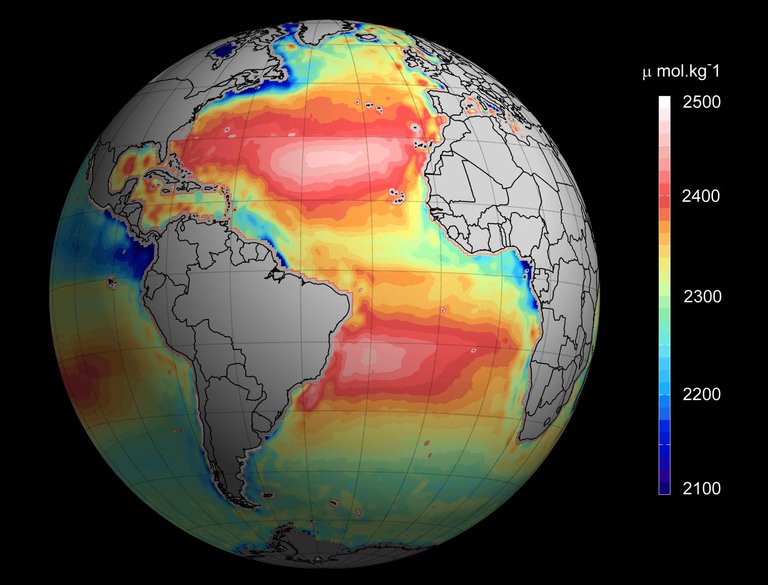Measurement of the acidity of the oceans by satellite

Using new techniques, an international team of researchers has measured the acidity of the sea by satellite. This is a first approximation with its limitations, but it can be of great utility for monitoring the global acidification of the oceans. The work has been published in the journal Environmental Science and Technology.
The sea absorbs a quarter of the CO2 emissions into the atmosphere, a process in which water is acidified. This is negatively affecting various ecosystems. The only way to follow up on this acidification has been to date the in situ measurement of acidity. To do this, it is necessary to carry out high cost oceanographic campaigns and, in addition, small areas are normally analyzed. The fact of being able to measure it via satellite would change radically. However, the researchers wanted to make it clear that these measurements by satellite do not replace those carried out on site, among other things because they are more reliable and are necessary to calibrate by satellite.
Acidity is calculated from the data of the surface temperature of the sea, chlorophyll and salinity that can be measured today via satellite. The key is in the measurement of salinity, since chlorophyll and temperature are measured long ago via satellite, but the ability to measure salinity has been reached in recent years with the satellites SMOS (2009) of the ESA and Aquarius (2011) of NASA-CONAE. The researchers recognize that “tools are new and measurement is still a challenge.” On the other hand, one of the limitations of the technique is that it only gives surface image. However, for the monitoring of ocean acidification, what happens on the surface is especially important, where atmospheric CO2 is absorbed.
Buletina
Bidali zure helbide elektronikoa eta jaso asteroko buletina zure sarrera-ontzian








